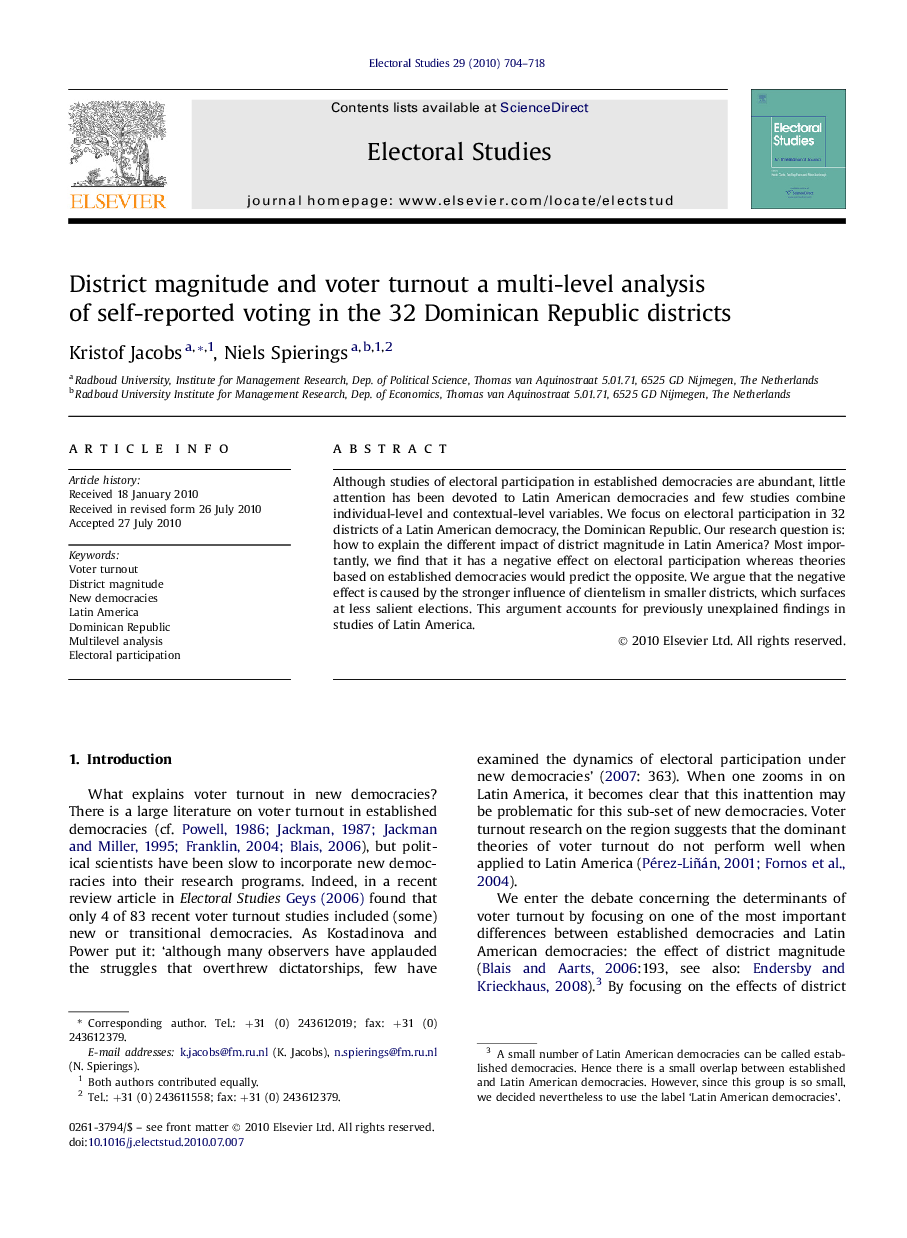| Article ID | Journal | Published Year | Pages | File Type |
|---|---|---|---|---|
| 1052343 | Electoral Studies | 2010 | 15 Pages |
Although studies of electoral participation in established democracies are abundant, little attention has been devoted to Latin American democracies and few studies combine individual-level and contextual-level variables. We focus on electoral participation in 32 districts of a Latin American democracy, the Dominican Republic. Our research question is: how to explain the different impact of district magnitude in Latin America? Most importantly, we find that it has a negative effect on electoral participation whereas theories based on established democracies would predict the opposite. We argue that the negative effect is caused by the stronger influence of clientelism in smaller districts, which surfaces at less salient elections. This argument accounts for previously unexplained findings in studies of Latin America.
Research highlights► Micro and macro-level explanations of electoral participation are roughly the same in old and new democracies. ► The major difference between old and new democracies is found for district magnitude, and to a lesser extent the socio-economic context. ► District magnitude has a clear negative effect on voter turnout in the Dominican Republic. ► The negative effect of district magnitude seems mostly present in non-salient elections. ► During non-salient elections clientelism seems to get a chance to increase voter turnout in smaller districts.
